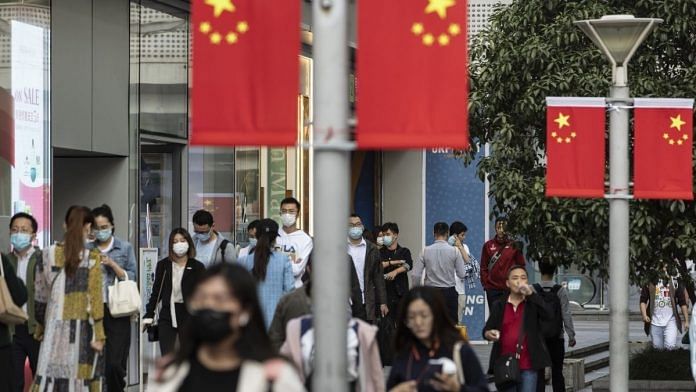China’s loosening of control over capital markets is being accompanied by tougher oversight of companies that previously faced little regulation.
Under President Xi Jinping, authorities appear keen to push ahead with reforms to give markets greater sway. Such measures will encourage inflows while making the economy leaner and more efficient, thus strengthening the country against a more hostile world. But greater opening also makes it more likely investors will pile into a small number of very profitable companies, mostly in the private sector. Such clustering could create imbalances in the financial system, as well as make some companies too powerful.
The conclusion for overseas funds: invest as much as you like, but beware.
One result is much greater scrutiny of industries and firms that have grown dominant. Last month alone, Beijing canned Ant Group Co.’s share sale at the 11th hour, issued rules to root out monopolies in the internet sector and began scrutinizing investments in new energy vehicles. Speculative frenzies — such as investors ordering $3 trillion worth of Ant stock — have always been anathema to Communist Party officials, even if they are hard to avoid.
“Regulation in China always alternates between loosening first and tightening later,” said Chaoping Zhu, a global market strategist with JPMorgan Asset Management. “It’s hard for the government to immediately find the appropriate approach to regulation, especially when it comes to new industries and new business models.”
Market reforms introduced under Yi Huiman, the top securities regulator since early 2019, include a flexible approach to pricing IPOs in Shanghai and Shenzhen, wider daily price limits for some equities, new stock derivatives and allowing some banks trade bond futures. From Nov. 1, China widened the investment scope allowed for foreign investors in its securities and futures markets.
Relaxed trading rules and the inclusion of Chinese assets into global indexes mean foreign investors own a greater proportion of onshore stocks and bonds than ever before.
Unshackling China’s capital markets helps fund private enterprise, energizing the world’s second-largest economy. But it also allows for abuse: companies might binge on debt irresponsibly while others go on an expensive overseas acquisition spree, or take advantage of cheap borrowing costs and plentiful liquidity to buy hot financial products. And without regulatory frameworks, some companies expand too quickly.
Ant is one of the starkest examples of this. The fintech giant, partly owned by one of China’s largest companies and controlled by one of its richest people, was set to be a big win for Shanghai’s experimental Star market, the venue that has served as a testing ground for new and relaxed rules since its launch last year. Ant’s shares drew unprecedented demand in the city and in Hong Kong.
The message sent instead was no one is more powerful than the state. Ant was trading at a 50% premium in Hong Kong’s gray market for professional investors. Now, the company might not go public before 2022 as it seeks to comply with new rules governing the fintech industry.
November’s crackdowns on fintech and e-commerce — which hit investor favorites Tencent Holdings Ltd. and Alibaba Group Holding Ltd. — showed the significant regulatory risk of investing in China’s increasingly open financial markets. The companies investors are most interested in are also the ones most likely to be targeted by officials.
In 2017, authorities took aim at some of the country’s largest and most successful private-sector conglomerates, including HNA Group Co. and Anbang Insurance Group Co., as part of efforts to reduce risk in the financial system.
State-owned companies aren’t immune to greater scrutiny. Kweichow Moutai Co., the highly profitable producer of an expensive brand of spirits, has repeatedly drawn the ire of Beijing. In July the stock plunged about 8% in a single day after the People’s Daily criticized the price of its liquor, saying the brand was often used in corruption cases. In 2017, Xinhua News Agency said the stock was rising too fast, triggering a wide selloff.
Even broad measures to liberalize markets can be reversed if they create instability. Five years ago, Beijing tightened controls over stock-market trading in the wake of a bubble bursting, including banning major shareholders from offloading their stakes and restricting short selling.
“Foreign investors should bear in mind of the risks of unexpected policies,” said Alvin Cheung, associate director at Prudential Brokerage Ltd. “Those could come out at anytime. It’s a feature of China’s market.”- Bloomberg
Also read: Suspension of Jack Ma’s Ant Group’s IPO shows Xi Jinping’s in charge



